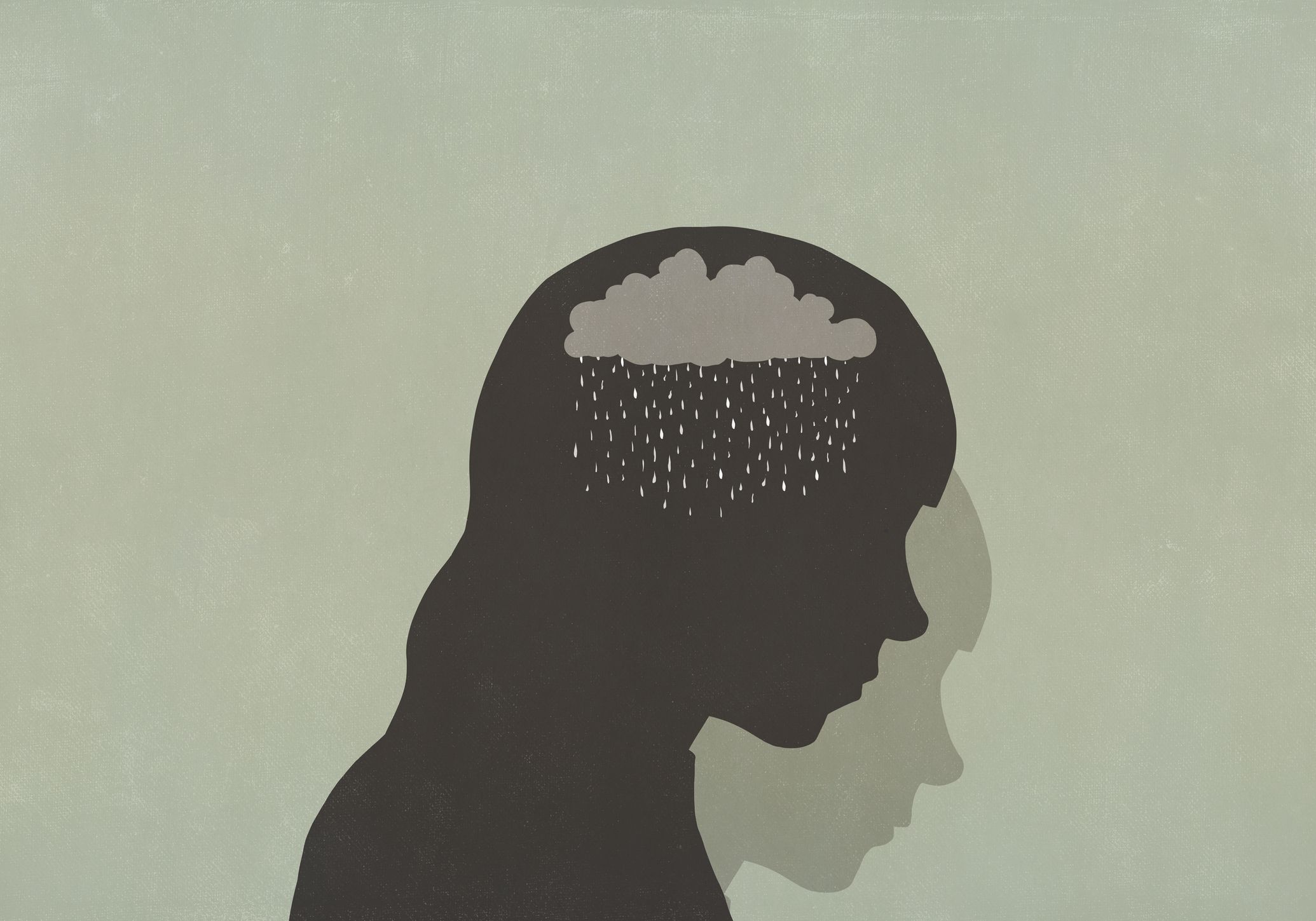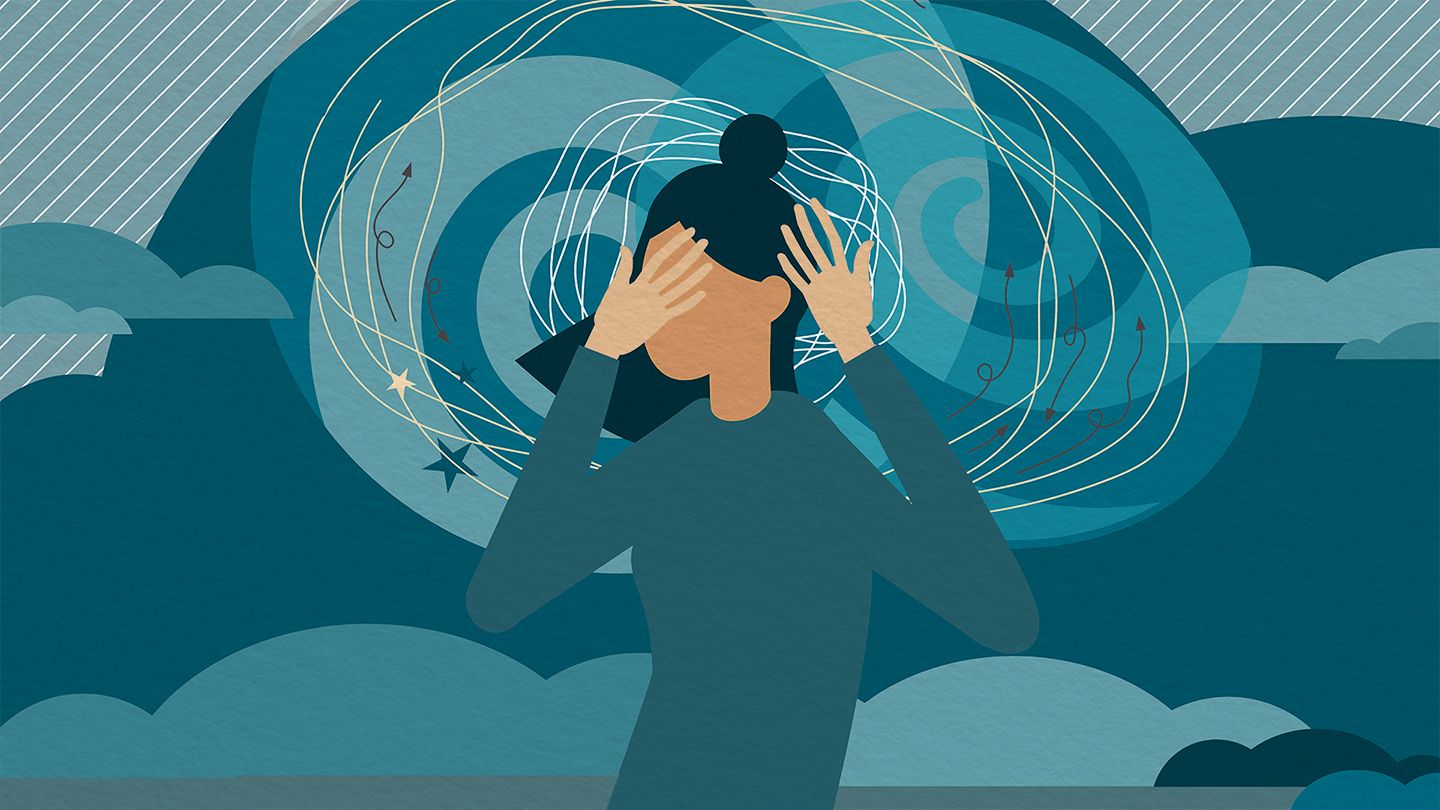Depression causes and symptoms

Depression is considered as a psychosocial disease which has disastrous effects on humans. It has become widespread in modern life, and many suffer from depression which inflicts the human psyche and body. Depression does not only affect our way of thinking and our behaviors but also causes several emotional and physical problems.
People suffering from depression cannot continue through their daily life as usual as it makes them feel hopeless about life, nervous, stressed, uncomfortable, confused and fearful. Many researchers agree on describing the modern era as an era of depression and worries, because life becomes more complicated and demanding. Regarding this issue, Canada is one of the countries in which depression is increasing in many areas, especially in the areas where the winters are longer. Along with being a psychosocial disease, depression is closely connected with the weather, environment and geography. Some studies have evidenced that there is a great relation between wintery weather, non-sunrise, clouds, storms, quantity of snow, low degrees and the difficult circumstances of immigrants; unemployment, and the absence of their relatives and friends. All these integrated factors play a vital role in increasing depression. Relatively speaking, psychosocial studies have shown that depressed people among new immigrants are increasing for different reasons including personal reasons and other causes which are related with the immigration process and its contradictory circumstances. Therefore, the subject of depression is an important part in psychosocial studies, for it causes psychological pressures and negative social effects on persons in different stages of their life whether in educational, professional or daily-life stages.
Depression Symptoms and Signs:
- Feeling sad, desperate and depressed; this is called "depressive mood disorder".
- Inability to enjoy life
- Loss of appetite and the inability to enjoy food; the depressed eat out of habit. Appetite often decreases, with resulting weight loss, although increased appetite and weight gain occasionally occur.
- Sleeping disorders such as hypersomnia or insomnia (frequently experienced by the elderly) and regularly accompanied with nightmares.
- Feeling inactive, lazy and tired, or unsystematically hyperactive leading to mind-absence and failure of students or employees in their missions.
- Feeling inappropriate, guilty and self-hatred.
- Thoughts of death or suicide and absurdity of life. People with depression occasionally commit suicide in an advanced stage of depression; noting that the issue of suicide should be considered and taken seriously when dealing with any signs of depression.
In our present age, the majority of psychosocial counsellors consider depression as a disease and those affected by this disorder should receive continued treatment comparable to the extended treatment of Diabetes or Hypertension.
Some people suffer from depression in only one period of their life, but most clients frequently suffer from depression for longer periods. Diagnosis and a treatment plan can mitigate symptoms even when they are acute.
Effective treatment can make depressed people feel more comfortable within a few weeks, and they can go back to their normal daily life and enjoy it as they did before falling into depression.
The international diagnosis for depression that is used today can be described as mild, moderate, or severe, with physical, non-physical, psychological or non-psychological signs.
The Influence of Depression:
Depression is a killing disease; 15% end their life by committing suicide, and studies have shown that 50% of those that have committed suicide were diagnosed to have depression in some period of their lifetime. Therefore, it is imperative that all depression cases should be carefully assessed for the possibility of suicide in the first stages of the disease. There is evidence that depression increases the possibility of death as a result of other diseases such as cancer and blood circulation diseases. According to the outcome study MOS Medical, depression has negative effects on clients more than the effects of chronic diseases such as blood pressure, diabetes and arthritis; this was measured by assessing physical and social performance in the client along with measuring the days he/she spends in bed and medical treatment he/she needs. Negative economic effects of depression include the actual costs of treatment and costs arising from productivity shortage due to illness or death.
Ways of Depression Treatment:
- Psychosocial treatment: This may allow the client to take comfort in the support and allow him/her to realize the condition of their health and open up a discussion about any feelings they may have experienced that were fraught with disappointment, despair and bitterness, which could lead to a new look on life and how they may enjoy it; this can sedate the severity of depression symptoms. The specialist, here, focuses on the significance of teaching the clients effective communication skills with others, paying attention to social relationships and contact with friends and family. In addition, the specialist continuously examines the causes and impulses of depression and attempts to assist the client in identifying these factors to aid the client in acknowledging them especially drugs and alcoholics which are remarkably widespread among clients. Key factors required to aid in the success of a client is emotional support, patience, understanding, compassion and motivation and most importantly to listen, as this can reinforce validation of what the client is feeling. If there are any discrepancies or anything appears strange from clients, this should be brought to the attention of the specialist. For example, you can take the client in a car ride to any relaxing place; Assert the importance if he/she refuses, also choose activities that the client previously had done in a normal routine, such as going to the worshiping place, gym or sports club or whatever hobbies they had previously been involved in. Hence, strong insistence is not recommended if there is a refusal to cooperate. This inability to cooperate could lead to a client’s feeling of failure. Typically, people diagnosed with depression are inactive and are not able to come out of depression on their own…you should remember that most depression cases can be treated but need patience and extensive treatment.
- Medical Treatment: today "antidepressants" are medically used. Historically, electroshock was used as depression therapy which was among the first discoveries of depression therapy. Response rate was between 70-90% after receiving treatment, including 8-10 electroshocks, 1 every two days till its’ completion. This is only prescribed by the specialist or a doctor.
- Working and relaxing: the client is given specific duties to spend his/her time working which makes him/her concentrate on the work and feel self-confident; engaging in the work can make the client come out of his/her melancholic thoughts.
- Entertainment: it allows the client to feel that he/she is in a normal condition which prevents him/her from deep melancholic thinking.
- Religion: Religious guidance and teaching the client how to repent and ask God for forgiveness by praying and supplicating; all these things help the client feel responsible and willing to work.
- Observation in Suicide Cases: A clients' behavior should be observed without informing them so as not to introduce thoughts of suicide. Trends and intentions of the client towards suicide should be noted in a very cautious and practical way which requires a continuous accurate observation, day and night, even if their health conditions improve.
It is important that client's family and friends to be familiar with the diagnosis and treatment, this includes encouraging the client to continue with the treatment in order to mitigate the symptoms to a satisfactory degree. If these are unsuccessful, another treatment plan should be considered.
(Robin Dayns, 2006:7; Trifol Bawl, 2008:10) asserts that one can control depression by learning skills to effectively treat situations that can cause depression such as relaxing, controlling physical feelings, controlling disturbing thoughts, false thinking, self-confidence, problem solving, making decisions, time management, interacting with others, influenced to be positive and urged to learn how to engage in methods to control one's feelings.
Scientific evidence infers that it is necessary to learn how to manage and control depression. For all the above mentioned, we can agree on the importance of psychosocial treatment to create better psychological and healthy conditions.
Contact us for a free 15-Minutes counselling session, or book an appointment for counselling at HPSC.




.png)


.png)
